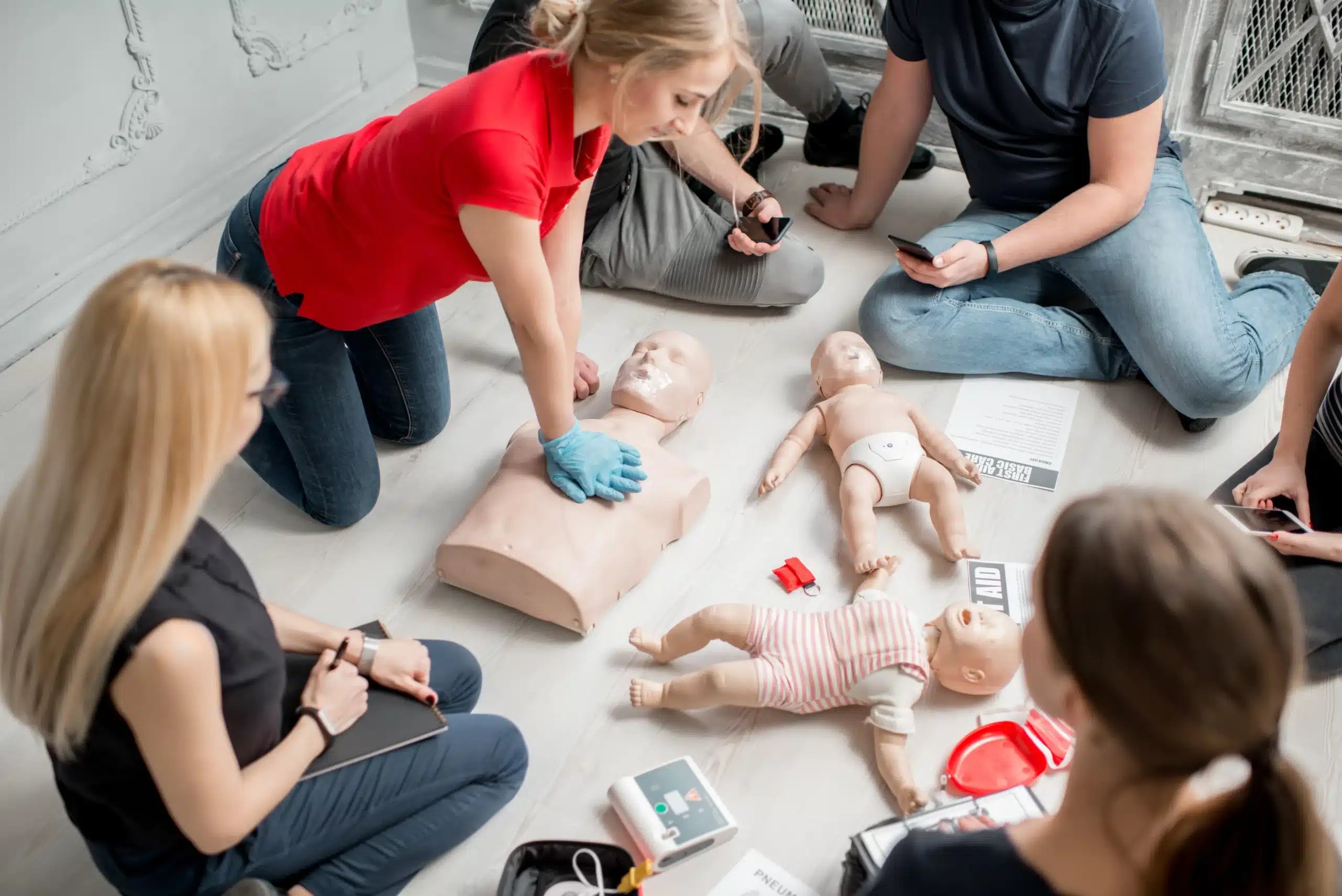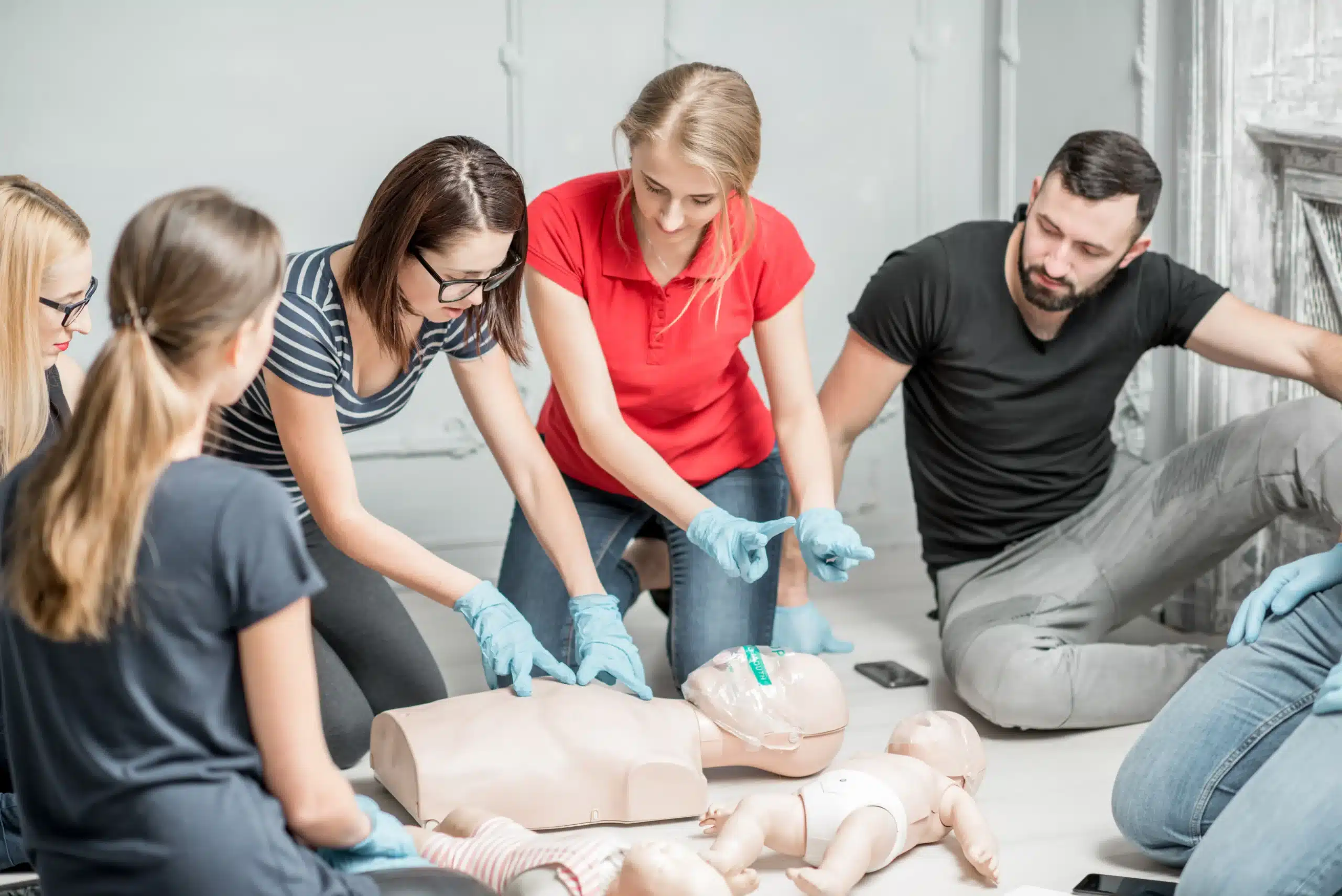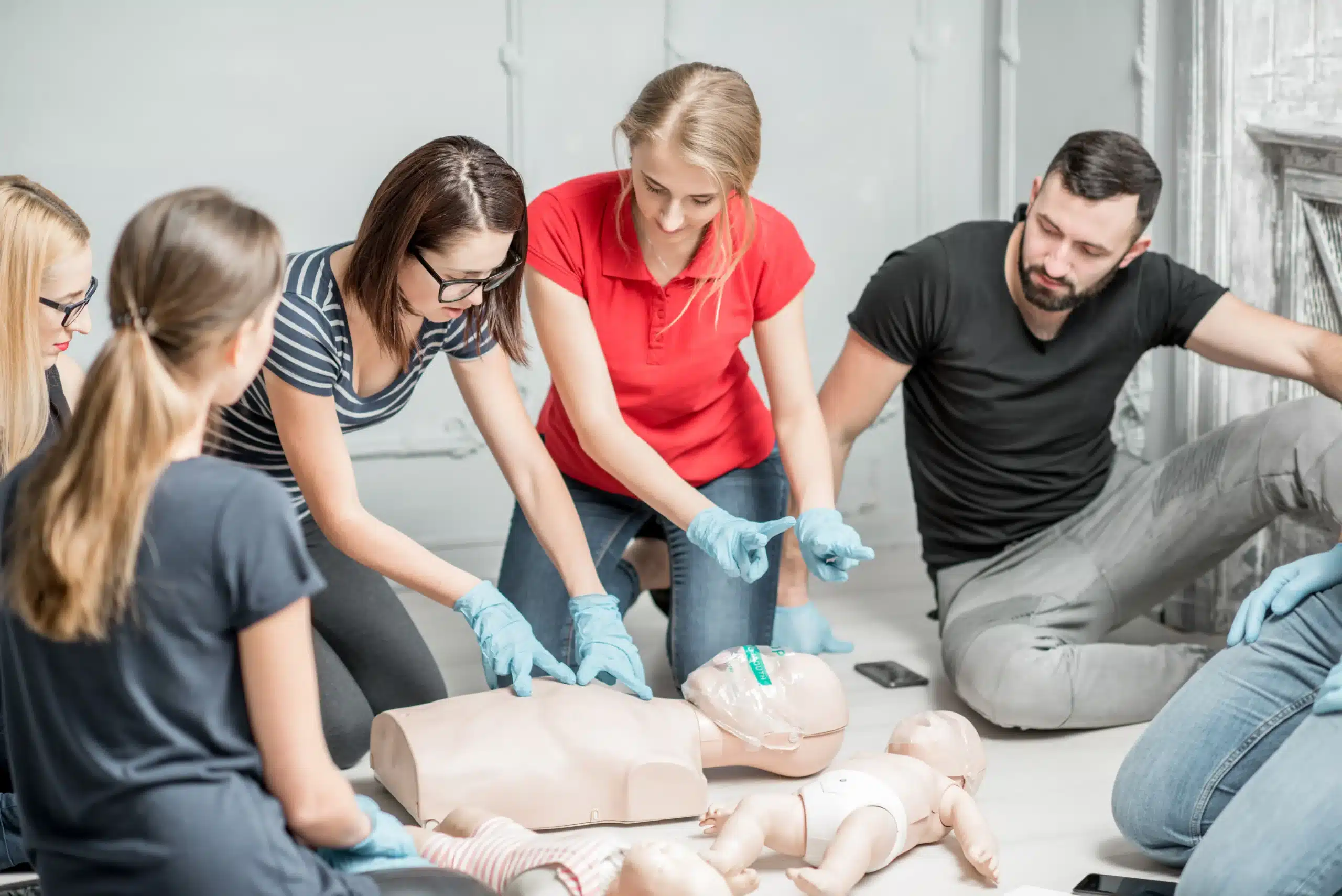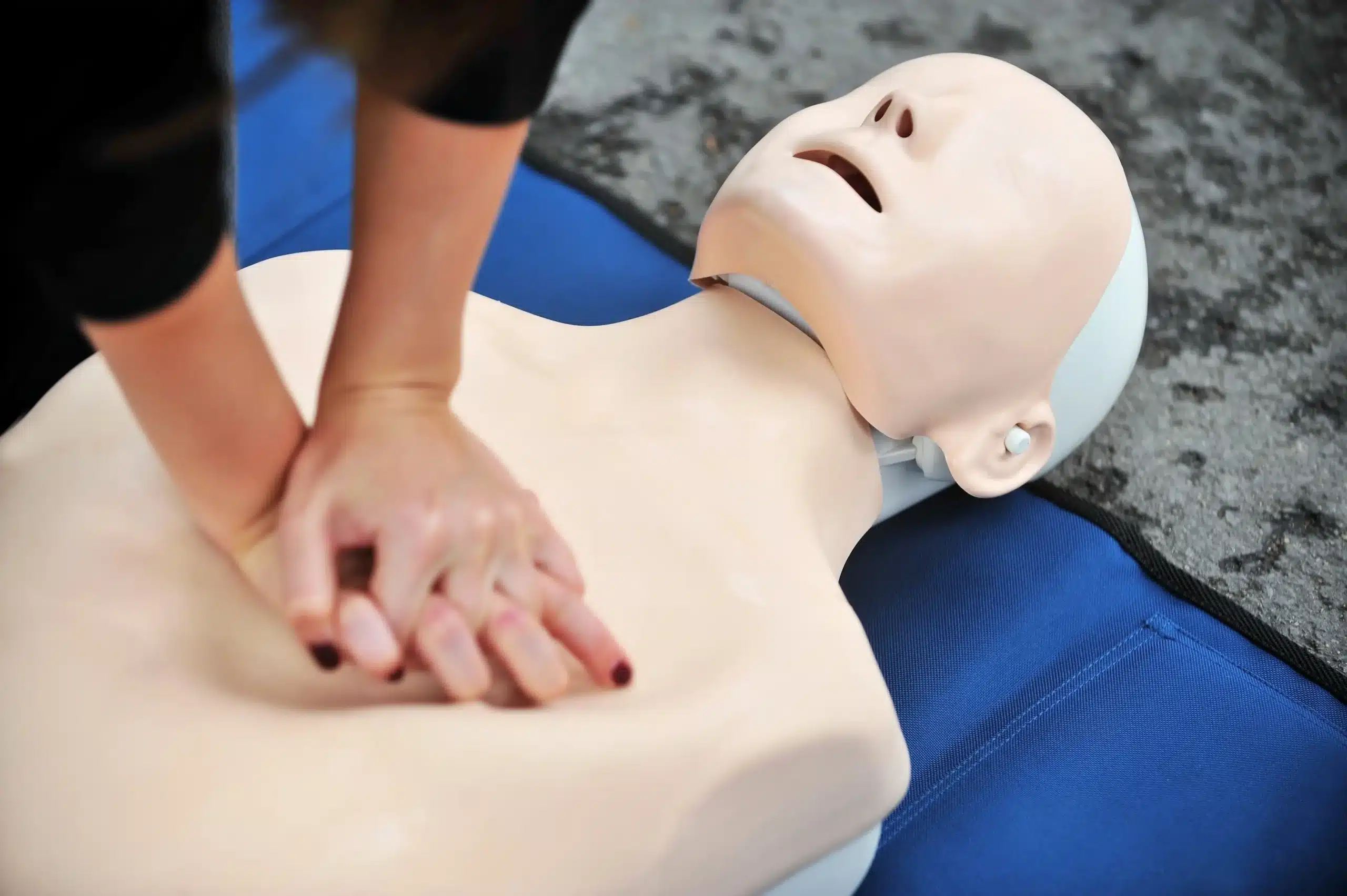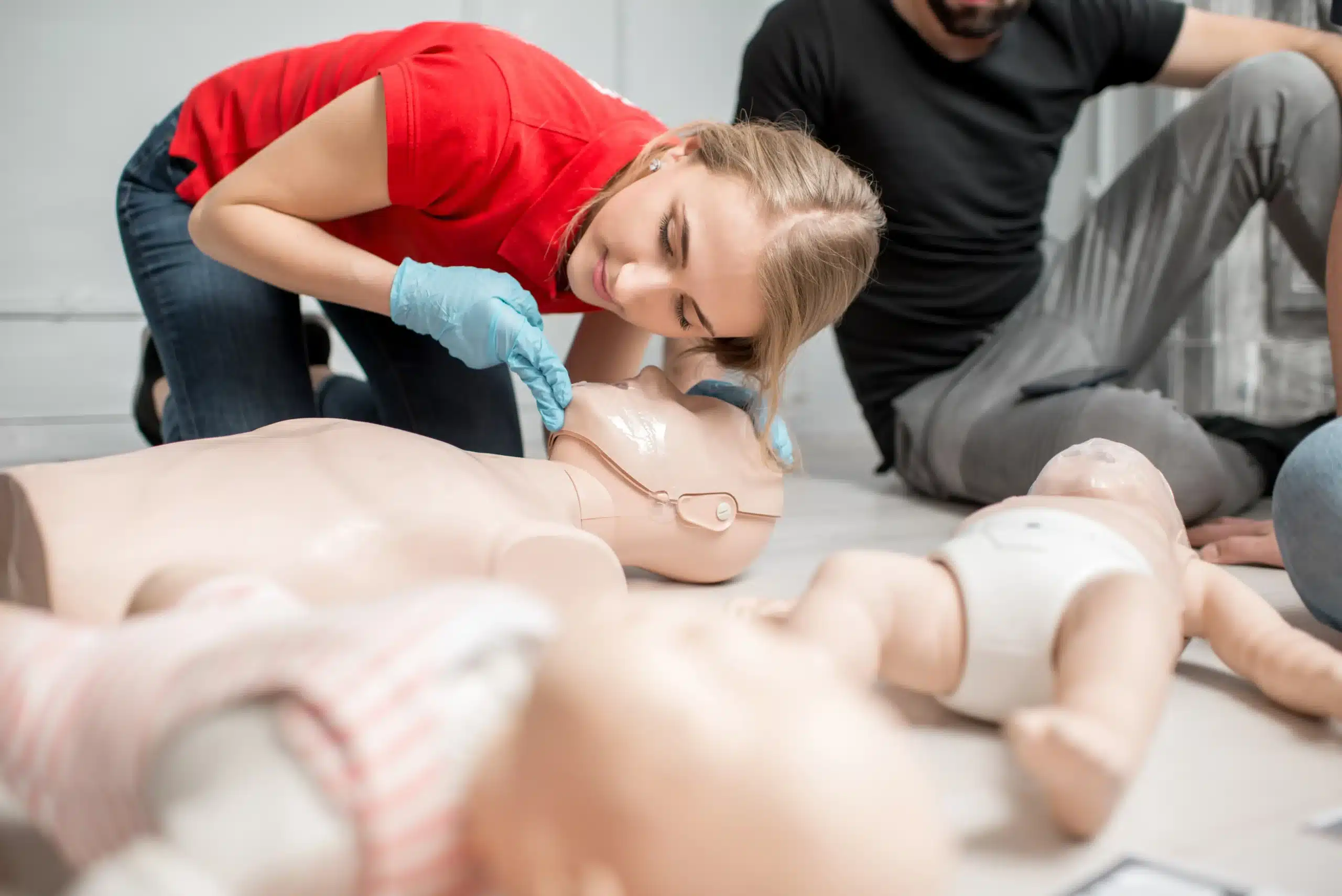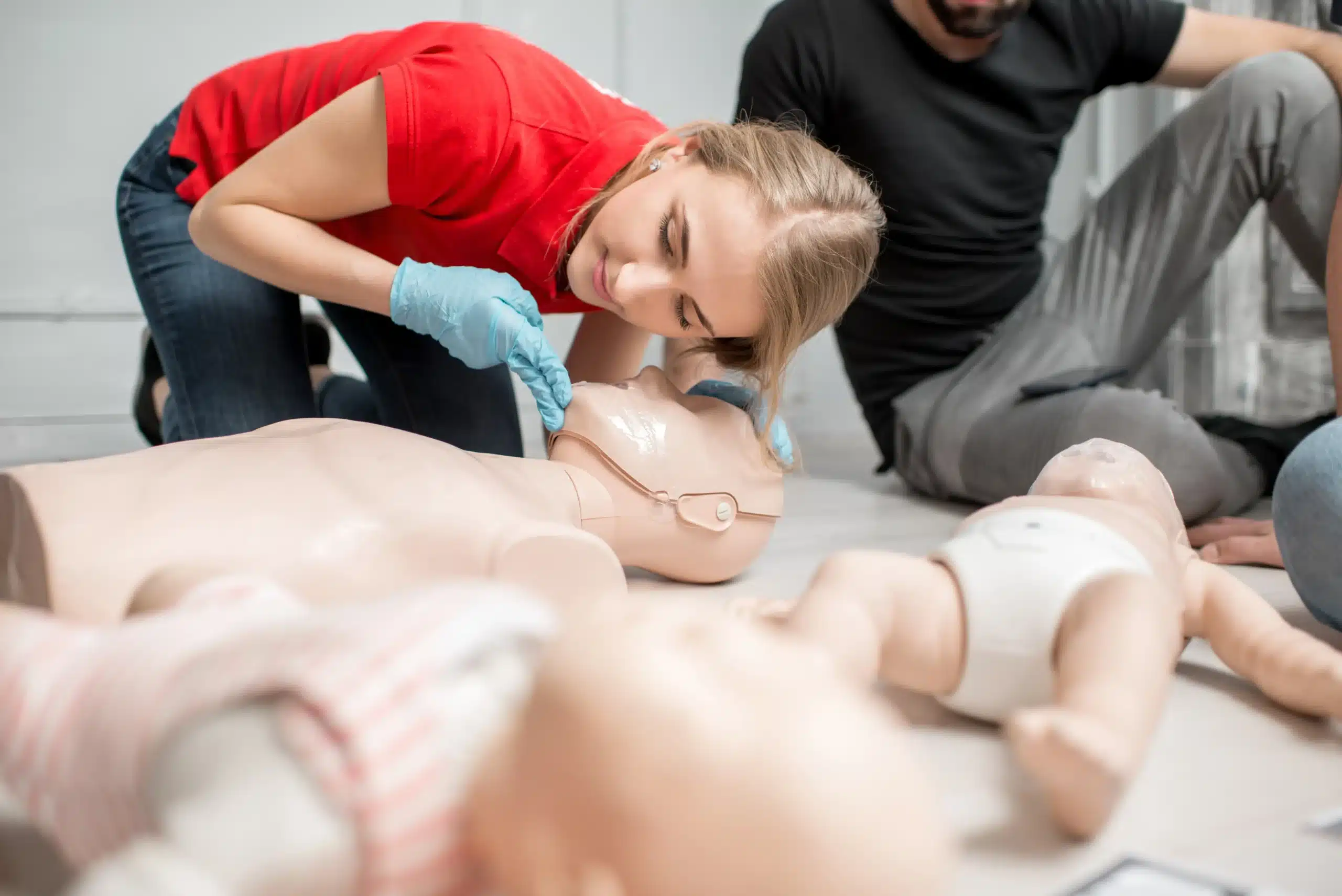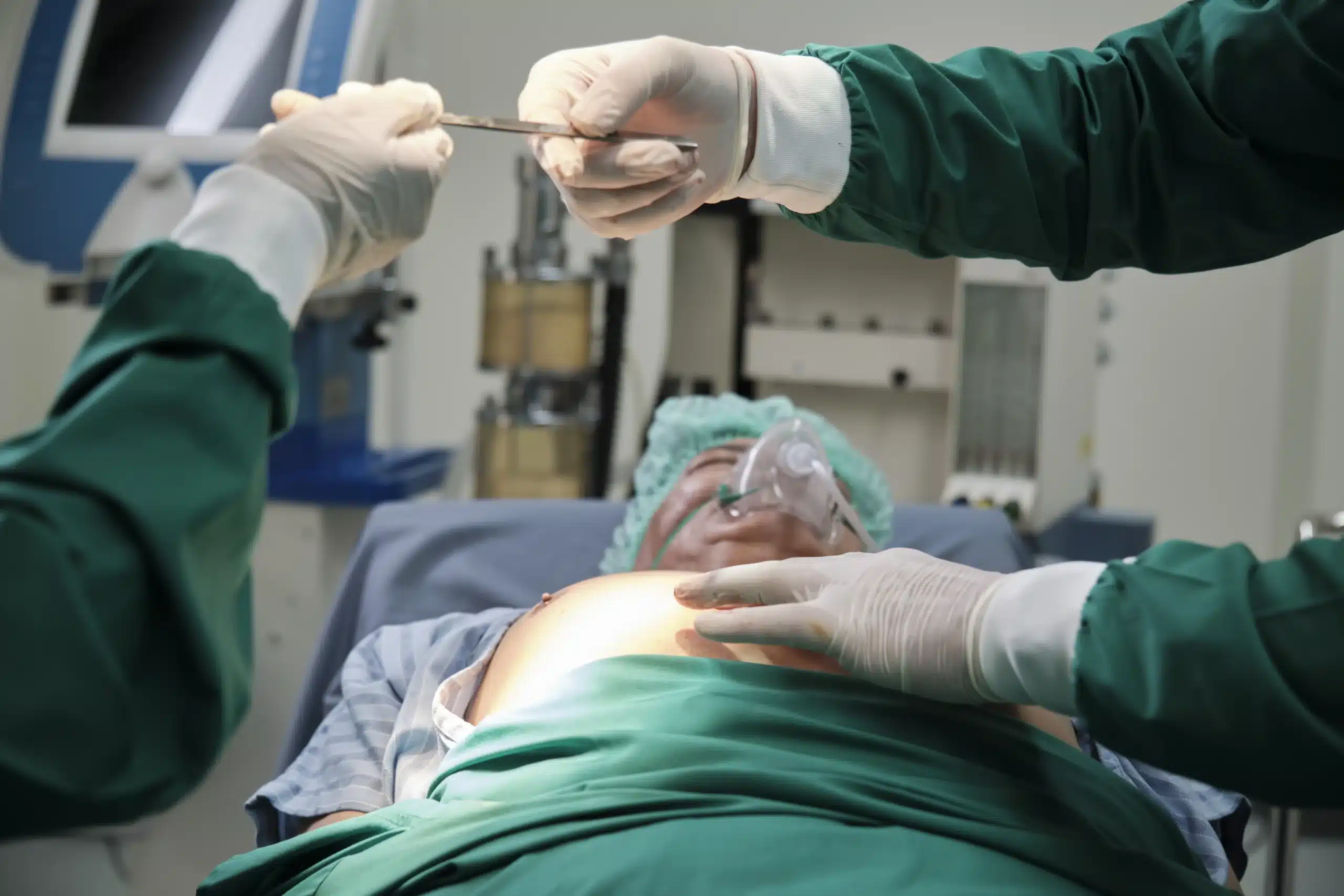Emergencies happen, and knowing how to respond can make all the difference. That’s why CPR and first-aid training is so vital, especially in a community like Windsor. Whether you’re a parent, a teacher, a healthcare worker, or just someone who wants to be prepared, having these skills can empower you to act quickly and confidently when it matters most. This comprehensive guide explores everything you need to know about CPR and first-aid in Windsor, from finding the right course to understanding the benefits of certification. We’ll cover various training options, local providers, and answer frequently asked questions to help you get started.
Key Takeaways
- CPR and first aid skills empower you in emergencies: Find a course that suits your needs, whether it’s basic life support or a specialized certification like BLS, ACLS, or PALS. These skills can make a real difference in your workplace, community, and personal life.
- Windsor offers flexible training options to fit your lifestyle: Explore various providers and compare course content, schedules, and costs. Look for options like evening and weekend classes, on-site training, or blended learning formats.
- Stay current to maximize your impact: Renew your certification regularly and keep your skills sharp through practice and review. Staying up-to-date on the latest guidelines ensures you’re always prepared to respond effectively.
What is CPR and First Aid?
CPR and first aid are two distinct but related skill sets essential for handling emergencies. Knowing the difference, and when to use each, is key for providing effective care.
CPR, or cardiopulmonary resuscitation, focuses on restoring blood circulation and breathing when someone’s heart has stopped. It involves chest compressions, and sometimes rescue breaths, to manually pump blood and oxygen to vital organs. Learning CPR empowers you to act quickly during critical events like a heart attack or near-drowning.
First aid covers a wider range of treatments for various injuries and illnesses. This might include cleaning and bandaging a cut, stabilizing a broken bone, or using an epinephrine auto-injector for a severe allergic reaction. Strong first aid skills help you address immediate medical needs until professional help arrives.
Although different, CPR and first aid often work together. You might perform CPR on someone who has collapsed, then use first aid to control bleeding or address other injuries after their heart restarts. A combined CPR and first aid course provides the knowledge and practice to handle various emergency situations, benefiting your family, workplace, and community.
CPR and First Aid Courses in Windsor
Windsor residents have several options for CPR and first aid training, from basic life support to specialized certifications. Whether you’re a healthcare professional, work in childcare, or simply want to be prepared for emergencies, finding the right course is essential. Safety Training Seminars offers many convenient options for CPR and first aid training in Santa Rosa, Rohnert Park, and Windsor.
BLS Training
Basic Life Support (BLS) certification is crucial for healthcare professionals and anyone responding to life-threatening emergencies. BLS courses cover core skills like CPR, using an AED, and relieving choking. Safety Training Seminars offers American Heart Association-certified BLS training, equipping you with the knowledge and skills to provide immediate care.
ACLS Training
Advanced Cardiovascular Life Support (ACLS) training builds upon BLS, focusing on advanced techniques for managing cardiovascular emergencies. This course is designed for healthcare providers, including physicians, nurses, and paramedics. Safety Training Seminars provides comprehensive ACLS training, covering topics like airway management, rhythm recognition, and effective team dynamics.
PALS Training
Pediatric Advanced Life Support (PALS) certification focuses on the specialized needs of infants and children in emergency situations. This course is essential for healthcare professionals working in pediatrics, emergency medicine, and intensive care. PALS training covers topics like respiratory emergencies, shock management, and post-resuscitation care. Safety Training Seminars offers PALS certification, ensuring you’re prepared to handle pediatric emergencies effectively.
First Aid Certification
First aid training provides the skills to respond to a wide range of medical emergencies, from minor injuries to life-threatening situations. Certification courses cover topics like wound care, bleeding control, and managing fractures and sprains. Combining first aid training with CPR certification ensures you’re well-prepared for various emergencies. Consider adding this training to your skillset.
Specialized Training
Beyond general first aid and CPR, specialized training caters to specific needs and industries. For example, childcare providers can benefit from specialized first aid and CPR training designed for infants and children. You can find resources for childcare first aid from various providers. Other specialized courses may focus on wilderness first aid, occupational health and safety, or emergency response in specific settings. Researching available options will help you find the training that best suits your requirements.
Top CPR and First Aid Training Providers in Windsor
Finding the right CPR and first aid training provider is crucial for receiving quality instruction and proper certification. Windsor offers a variety of options, each with its own strengths. Here’s a look at some of the leading providers in the area:
Safety Training Seminars
Safety Training Seminars offers American Heart Association (AHA) certified courses, including CPR, BLS, ACLS, PALS, NRP, EMSA, and First Aid. While their primary location is in Santa Rosa, they sometimes offer classes in Brentwood, making them a potential option for those seeking AHA certification in the broader region.
Windsor/Essex CPR
Windsor/Essex CPR & First Aid Training focuses on Canadian Red Cross certified courses. They offer a wide selection of programs suitable for workplace requirements, school programs, or personal enrichment.
St. John Ambulance
St. John Ambulance is a well-known provider of first aid and CPR training. Check their website for specific course offerings and schedules in the Windsor area. They emphasize practical skills and real-world application.
First Aid 4U
First Aid 4U is a Red Cross Training Partner offering WSIB-approved first aid and CPR courses in Windsor and surrounding areas. They also provide Red Cross recertification courses, making it convenient to maintain your credentials.
C2C First Aid Aquatics
C2C First Aid Aquatics specializes in Red Cross certified first aid and CPR/AED training. They offer private courses in Windsor, a good option for those with specific scheduling needs or who prefer personalized learning.
Perri-Med
Perri-Med offers a comprehensive range of first aid, CPR, and AED training courses across Southern Ontario, including Windsor. They cater to both individuals and businesses, offering flexibility for different training needs.
St. Clair College
St. Clair College partners with Revive Life Saving Skills CPR to offer first aid and CPR courses. This can be a convenient option for students and community members seeking local training.
CPR and First Aid Course Costs & Discounts
Knowing the price of CPR and first aid training is a practical first step. While costs vary depending on the provider and the specific course, understanding the general price range and available discounts helps you budget effectively. This section breaks down individual course prices, group discounts, and low-price guarantees to help you find the best value.
Individual Course Prices
Individual course prices depend on several factors, including the type of certification (CPR, first aid, BLS, ACLS, etc.), the training level, and the training provider. Generally, basic CPR and first aid courses are the most affordable, while more advanced certifications like ACLS and PALS cost a bit more. Safety Training Seminars offers competitive pricing on all its courses, including BLS and ACLS. Remember, your training cost usually covers essential materials like your certification card, manuals, and equipment usage.
Group Discounts
If you’re training with a group, like coworkers or a community organization, explore group discounts. Many providers offer substantial price reductions for group bookings. Safety Training Seminars’ group discounts can significantly lower the per-person cost, making training more accessible. Contact providers directly to discuss specific group rates and minimum participant requirements. You may also be able to negotiate a special rate for your group.
Low Price Guarantees
Look for training centers that offer a low-price guarantee. This ensures you’re getting the best possible value. Safety Training Seminars’ low-price guarantee gives you confidence that you’re receiving high-quality training at a competitive price. A low-price guarantee demonstrates a provider’s commitment to affordability and can save you money. Don’t hesitate to compare prices and ask providers about their guarantee policies.
Class Schedules and Locations
Finding the right CPR and First Aid class is easier than you think, thanks to the range of schedules and locations available in Windsor. Whether you’re a busy professional, a student, or just have a packed schedule, there’s an option that will work for you.
Evening & Weekend Classes
Juggling work, family, and other commitments? Many training providers in Windsor understand the demands of a busy lifestyle and offer evening and weekend CPR and First Aid classes. This flexibility makes it possible to get certified without sacrificing your personal time. Check with providers like Windsor/Essex CPR for their current schedule.
On-Site Training
Need to train a group of employees or colleagues? On-site training is a convenient and efficient solution. Instructors can come directly to your workplace or chosen location, providing high-quality instruction in a familiar environment. This eliminates travel time for your team and allows for a more tailored training experience. Contact Windsor/Essex CPR to discuss on-site training options.
Online & Blended Learning
Prefer to learn at your own pace? Online and blended learning options combine the convenience of online study with the essential hands-on practice of in-person training. You can complete the theoretical coursework online, then attend a shorter in-person session to practice your skills and receive your certification. Explore the blended learning opportunities available through providers like Perri-Med.
Training Facilities
Windsor has several established training facilities equipped to deliver comprehensive CPR and First Aid instruction. These facilities often offer a variety of courses and schedules, making it easy to find a class that fits your needs. Windsor First Aid is one example of a well-equipped facility with a range of courses available.
What Happens in a CPR and First Aid Class?
Curious about what goes on in a CPR and First Aid class? It’s a mix of learning vital lifesaving skills and practicing them hands-on. Here’s a preview:
Course Content & Skills
CPR and First Aid classes give you the knowledge and skills to respond effectively to various emergencies. You’ll learn to recognize the signs of a heart attack, stroke, and other medical crises. The CPR training covers chest compressions, rescue breaths, and using an AED (automated external defibrillator). The First Aid section teaches you how to manage choking, bleeding, burns, fractures, and other common injuries. You’ll also learn how to contact emergency medical services and understand your role in providing care until help arrives.
Hands-on Practice
While theory is important, practical experience is key to mastering lifesaving skills. Much of the class involves hands-on training with mannequins and other equipment. This practical training lets you apply what you’ve learned in a safe environment. Experienced instructors guide you, offering feedback and helping you develop the confidence to act quickly and efficiently in a real emergency. This hands-on approach helps build muscle memory and solidify your skills.
Instructor Qualifications
Your instructors are certified professionals with extensive First Aid and CPR experience. They keep current with the latest guidelines from organizations like the American Heart Association. They foster a supportive learning environment where you can ask questions and receive personalized guidance. Their expertise ensures you receive top-notch training that meets industry standards.
Certification
Once you successfully complete the course and demonstrate your skills, you’ll receive a certification, typically valid for two years. This certification shows your CPR and First Aid competence and may be a requirement for certain jobs or volunteer opportunities. Remember to renew your certification every two years to maintain your skills and stay up-to-date with any changes in guidelines.
Choose the Right CPR and First Aid Course
Picking the right CPR and first aid course is a personal decision. It depends on your job, family situation, and goals. Think about why you want this training and what you hope to gain from it. This will help you narrow down your options.
Assess Your Needs
Before you sign up for anything, ask yourself a few key questions. Are you required to have CPR and first aid certification for your work? If so, are there specific requirements you need to meet? For example, healthcare providers often need American Heart Association BLS certification, while a childcare provider might need a course covering pediatric first aid and CPR. Even if you’re not required to get certified for work, consider your personal life. Do you have young children? Do you spend time around elderly relatives? Knowing exactly why you want this training will help you choose the right course. If your workplace requires CPR certification, ask about approved providers.
Compare Courses & Providers
Once you have a good understanding of your needs, it’s time to start comparing courses and providers. Look at different options in your area, like Safety Training Seminars, and see what they offer. Check out the course content, the instructors’ qualifications, and the overall cost. Don’t be afraid to ask questions! A reputable provider will be happy to discuss your needs and help you find the best fit. If convenient class times and locations are important to you, factor that in as well. Some providers offer evening and weekend classes, or even on-site training for groups. Also, check if the provider offers any kind of low price guarantee. Consider online reviews and testimonials from previous students to get a sense of the quality of instruction.
Certification Requirements
Different certifying organizations have different requirements, so make sure the course you choose meets the standards you need. For example, if your workplace requires American Heart Association certification, a Red Cross certification might not be sufficient. Pay attention to how long the certification is valid. Most certifications require renewal every two years, so factor that into your decision. You’ll also want to consider the reputation of the certifying organization. The American Heart Association and the American Red Cross are widely recognized and respected. If you’re unsure about the requirements for your specific situation, it’s always best to check with your employer or regulatory body. Make sure any certifications offered are nationally accredited and accepted in your field.
Benefits of CPR and First Aid Certification
Getting certified in CPR and First Aid isn’t just about learning life-saving skills—it’s about contributing to a safer community and opening doors to new opportunities. Whether you’re aiming to meet workplace requirements, strengthen your resume, or simply feel prepared to help in a crisis, there are tangible benefits to becoming certified.
Workplace Standards
Many workplaces, especially those in healthcare, education, and childcare, require employees to maintain current CPR and First Aid certifications. This ensures everyone is prepared to handle emergencies effectively, creating a safer environment for both employees and the people they serve. Meeting these standards not only keeps your workplace compliant with regulations but also demonstrates a commitment to safety and preparedness.
Community Safety
CPR and First Aid training empowers you to respond confidently during emergencies, making your community a safer place. These skills mean you can provide immediate assistance to someone experiencing a medical crisis, potentially saving a life. The more people trained in a community, the stronger the safety net. Community-focused training emphasizes recognizing and treating medical emergencies as a vital step in building a more resilient and prepared community.
Career Advancement
A CPR and First Aid certification can significantly enhance your resume and open up new career paths. Many employers see these certifications as valuable skills and a commitment to safety. Whether you’re pursuing healthcare or adding an asset to your skillset, these certifications can give you an edge. Institutions like St. Clair College offer various courses, allowing you to tailor your training to your career goals.
Maintain Your CPR and First Aid Skills
Once you’ve earned your CPR and First Aid certification, staying current with the latest guidelines and techniques is essential. Regularly refreshing your skills ensures you’re always prepared to respond effectively in an emergency.
Renew Your Certification
CPR and First Aid certifications typically expire after a certain period, often every two years. Check your certification card for the expiration date and don’t let your skills lapse. Renewing your certification demonstrates your ongoing commitment to providing high-quality care and keeps you up-to-date with any changes in protocols. Safety Training Seminars offers a variety of renewal courses to make this process convenient.
Stay Updated
Even if your certification isn’t due for renewal, staying informed about updates in CPR and First Aid practices is crucial. Medical knowledge and techniques evolve, so it’s important to keep your skills sharp. Consider attending refresher courses or workshops periodically to learn about new developments and best practices. This proactive approach will help you maintain confidence and competence in emergency situations.
Skill Retention Tips
Regular practice is key to retaining CPR and First Aid skills. Consider these tips to keep your knowledge fresh:
- Review your course materials: Periodically review the manuals and resources from your CPR and First Aid training. This will reinforce key concepts and procedures.
- Practice with friends or family: Organize informal practice sessions with friends or family members. You can walk through different scenarios and practice techniques on each other.
- Visualize scenarios: Mental rehearsal can be a powerful tool. Imagine yourself responding to various emergencies and mentally walk through the steps you would take.
- Take advantage of online resources: Many online resources offer videos, quizzes, and interactive tools to help you refresh your skills.
CPR and First Aid Training FAQs
This section answers common questions about CPR and first aid training in Windsor. We’ll cover certification validity, course types, what to expect in a class, and more.
How long is CPR and first aid certification valid?
CPR and first aid certifications are typically valid for two years. However, this can vary based on the certifying organization and the specific course. Always check with your training provider or the certifying body (like the American Heart Association or the Red Cross) for the most accurate information. Recertification courses are readily available to keep your skills sharp. For example, providers like Windsor/Essex CPR & First Aid Training offer various recertification options.
What types of CPR and first aid courses are available in Windsor?
Windsor offers a wide range of CPR and first aid courses to meet diverse needs. You’ll find everything from basic CPR and first aid to more advanced courses like BLS, ACLS, and PALS. Specialized courses, such as those designed for healthcare providers or childcare professionals, are also available. Some training centers, like C2C First Aid Aquatics, offer convenient private training sessions.
What should I expect in a CPR and first aid class?
CPR and first aid classes typically combine classroom learning, demonstrations, and hands-on practice. You’ll learn essential life-saving skills, including performing CPR, controlling bleeding, and responding to various medical emergencies. Many courses also cover contacting emergency medical services and the legal aspects of providing CPR, as highlighted by Windsor First Aid – CPR Training.
How do I choose the right CPR and first aid course?
Consider your specific needs and any requirements of your workplace or profession. If you need certification for a particular job, ensure the course meets those standards. Compare different providers, like St. Mark James First Aid and CPR Courses, based on cost, schedule, location, and instructor experience. Reading reviews and testimonials can also give you valuable insights. Don’t hesitate to contact training providers directly with any questions. For instance, First Aid & CPR Training Courses In Windsor offers a wealth of information and encourages direct contact.
Related Articles
- Why CPR is Critical in Healthcare
- Workplace CPR and First-Aid Training Saves Lives
- CPR Courses in Windsor: Everything You Need to Know
- BLS Certification for Healthcare Providers in Santa Rosa
- First Aid Certification Santa Rosa: A Comprehensive Guide
Frequently Asked Questions
How much does CPR and first aid training cost?
The cost varies depending on the level of certification, the training provider, and whether you’re taking a group or individual class. Basic CPR and first aid courses are generally more affordable than advanced certifications like BLS or ACLS. Many providers offer discounts for group bookings, so be sure to ask about those. Check out Safety Training Seminars’ website for their pricing and discount options. They even have a low-price guarantee.
What if I’m nervous about performing CPR in a real emergency?
It’s completely normal to feel apprehensive about using CPR in a real-life situation. That’s why hands-on practice during training is so important. The more you practice in a safe learning environment, the more confident you’ll become. Remember, any attempt to help is better than no attempt at all. Your training will equip you with the skills and knowledge to act quickly and effectively.
Do I need to be physically fit to perform CPR?
You don’t need to be a marathon runner to perform CPR! While it can be physically demanding, the emphasis is on proper technique, not brute strength. Your instructors will teach you the correct hand positioning and body mechanics to minimize strain and maximize effectiveness. Even people with physical limitations can learn and perform CPR.
What if I don’t have time for a traditional in-person class?
Many providers now offer blended learning options, combining online coursework with shorter in-person skills sessions. This allows you to learn the theoretical material at your own pace and then practice the hands-on skills under the guidance of an instructor. This flexible approach makes CPR and first aid training accessible to even the busiest schedules. Check with local providers to see what online or blended learning options they offer.
How can I stay up-to-date on CPR and first aid best practices after I’m certified?
Staying current is easy! Periodically review your training materials, and consider taking refresher courses or workshops. Even practicing with friends or family can help keep your skills sharp. Also, follow reputable organizations like the American Heart Association or the Red Cross for updates and new guidelines. They often have resources and online tools to help you stay informed.
